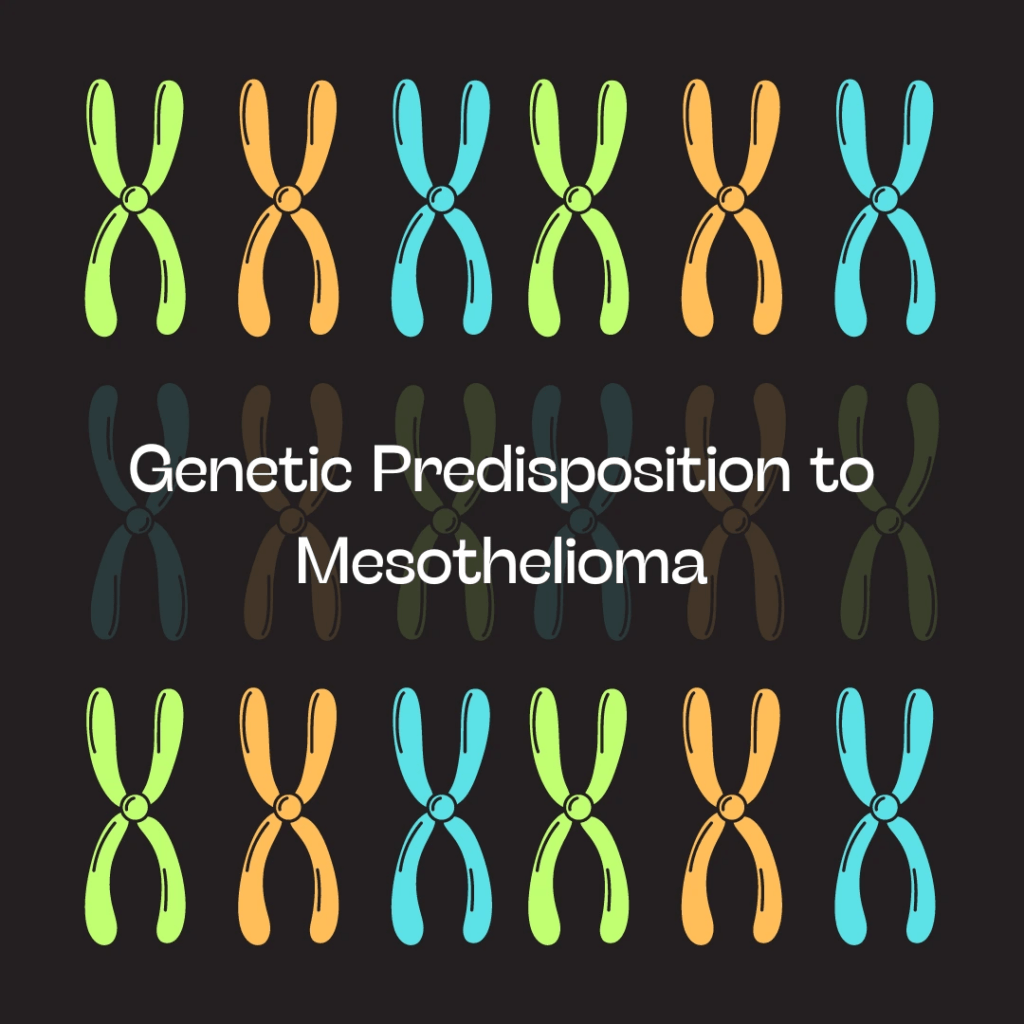Key takeaways: Some genetic mutations in genes that are responsible for keeping cell growth in-check are associated with mesothelioma patients. Some inherited mutations are associated with better outcomes for certain treatments, though. It is thought that some may have a genetic predisposition to mesothelioma. 
What are Genetic Mutations?
Genetic mutations are any changes that occur to the sequence of your DNA, either as something you inherit (from your parents) or as a response to environmental manipulation (like radiation). Because DNA accounts for all of the processing and healthy functioning of your body, a mutation could pose serious risks. (Other mutations are effectively harmless; it depends on the gene that is mutated and its function in the body.)
Mutations are known to be associated with cancer, like excessive UV exposure altering the DNA in skin cells and leading to skin cancers. While this link between genetic mutation and cancer development has been established for other cancers, less is understood about mesothelioma. Given its rarity and traditional association with asbestos exposure, there has not been much research (until recently) about the ways that genetic mutations could factor into a mesothelioma diagnosis, and how there may be a genetic predisposition to mesothelioma
How are Mutations Related to Mesothelioma?
There are certain genes called tumor suppressor genes that are responsible for the correct “lifespan” of cells. If a group of cells is growing too quickly, then tumor suppressor genes are turned on. These genes contain the codes for certain proteins that are responsible for enabling cell-mediated death (apoptosis) and curtailing the cellular cascade that leads to extensive cellular growth. When these tumor suppressor genes are mutated, then their functions are altered. Perhaps there might be a different result when a mutated tumor suppressor gene is turned on, or maybe there won’t be any inhibition of extensive cellular growth. All of these instances lend themselves to the development of cancer.
Mesothelioma Risk Factors
A 2019 study sought to look at the effect of genetic mutations on the development of pleural mesothelioma. They compared the genomes of a control group (without mesothelioma) and an experimental group (diagnosed with mesothelioma) found that the “mesothelioma patients… with germline loss-of-function mutations in any tumor suppres-sor gene was 11.7%,” (Hassan et al.). A germline mutation is a mutation inherited via an ovum or sperm and can be passed onto future offspring. A loss-of-function mutation means that the gene is inert–it doesn’t have the effect that it’s supposed to. So, the mutation that the researchers are finding is an inherited loss-of-function of the tumor suppressor genes. In the experimental group, the proportion of patients with this mutation had a better outcome with chemotherapy care than those without the germline mutation. While the mutation might have contributed to the onset of the mesothelioma, it also facilitated its treatment.
The researchers also found that a mutation in the DNA repair genes, whose function is the repair of DNA, was associated with mesothelioma. They suggested that doing a genetic test on each patient with mesothelioma could a.) help with future diagnostic procedures by documenting possible genetic mutations; and b.) ensure that patients are receiving the most tailored and accurate care as possible. Given that certain patients have a genetic predisposition to mesothelioma that may make them more receptive to certain forms of care, it would be very useful to have a genetic map of each mesothelioma patient.
If you or a loved one has been diagnosed with mesothelioma, please call The Halpern Law Firm at (800) 505-6000. We are here to help you navigate the legal process of filing a claim to receive compensation for your cancer diagnosis. We help mesothelioma victims and their families in Pennsylvania.
Sources:
Hassan, Raffit et al. Inherited predisposition to malignant mesothelioma and overall survival following platinum chemotherapy. (n.d.). https://doi.org/10.1073/pnas.1821510116
Oncogenes, Tumor Suppressor Genes, and DNA Repair Genes. (n.d.). Retrieved February 16, 2024, from https://www.cancer.org/cancer/understanding-cancer/genes-and-cancer/oncogenes-tumo r-suppressor-genes.html
Written By Carina Filemyr
